


BRUCE W. TUCKER "APOLLO"
A former Douglas Foundation Clandestine HUMINT contractor, Tucker now oversees Tucker Global Initiatives, a specialized intelligence contract facilitator for Special and Controlled Access Programs.
He was the only officer recruited & trained personally by Gregory Douglas, Director of Operations for the Douglas Foundation. Tucker's training proved invaluable when he served as interim director for Douglas on numerous occasions. During his tenure, Tucker enacted policies and procedures that improved counterdrug operations' proficiency and sustainability. Those practices have since become Standard Operating procedures across all Foundations.
During Tucker's field service, he worked as an infiltration specialist, a type of clandestine Human Intelligence (HUMINT) collector who used advanced psychological tradecraft to insinuate himself into the target's organization or
personal life, thus manipulating them from within. This is considered one of the
most dangerous contracted operations available to civilians. In the course of his duties, Tucker helped dismantle drug cartels, human trafficking rings, black market arms dealers, and organized crime groups. As a member of the US Intelligence Community, he has received numerous awards and has twice been presented with
the Presidential Award for Excellence by both Presidents Bush (1992 & 2008).
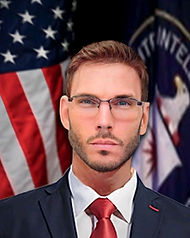

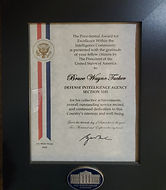



one man, a thousand shadows







Through Tucker Global Initiatives, Gregory Douglas' fundamental mission to "Ensure the World's Future Through Intervention" is continued and broadened. A co-founder and director of The Douglas Foundation, Mr. Douglas devoted his life to "saving mankind from itself" and believed mankind must endure this dark stage of evolution to learn to see beyond our hatred and fear. As a result, a higher level of consciousness would emerge, connecting humanity in ways we can't imagine today. It would be painful to understand the barbarity of human nature, but before we can evolve beyond it, we must first understand it. Although Douglas was often dismayed by the cruelty men inflicted on one another, he never lost hope. His vision was of a united human race without conflict and deeply believed acting together would one day save us from unimaginable threats.
Gregory Douglas was not only a man of vision; he was also a man of action. He knew that waiting for problems to solve themselves or discussing solutions in endless committees could not save humanity. To survive, he understood it would take extraordinary people willing to perform impossible tasks, often by means that blurred the line between right and wrong. Diplomacy would not win the first battles in the war to secure man's future. To evolve, we had to face the darkness and conquer it. You fight fire with fire in war, and sometimes the means justify the ends. Douglas gave his life in order for others to have a chance at survival. Having chosen his fate, he died in the same way that he lived: by saving others. Without fear or regret, he faced his mortality knowing that his last act was to protect innocent lives, none of whom would ever know of his sacrifice.

Ensuring the world's future through intervention.
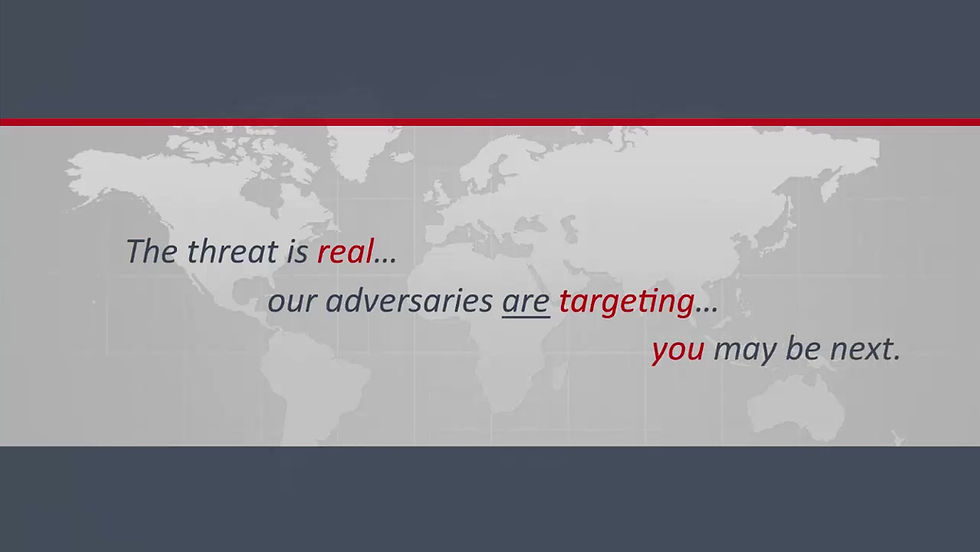
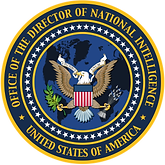
KEY FACTS ABOUT CONTRACTORS
From the Office of the Director of National Intelligence
Myth
70% of the U.S. intelligence budget is spent on private contractors.
Reality
This is a repeated misconception. 70% of the Intelligence Community (IC) budget is spent on contracts, not
contractors. Those contracts cover major acquisitions such as satellites and computer systems, as well as
commercial activities such as rent, food service, and facilities maintenance and security.
Myth
The Intelligence Community does not have an accurate picture of its contractor ranks and does not exercise
proper oversight over that community.
Reality
The IC is a leader in taking a serious, systematic approach to planning and managing its core contract personnel.
In 2006, the IC instituted its first-ever, annual inventory of core contract personnel. The inventory led to
intelligence policy directive 612, which (1) reinforces the prohibition on the use of contract personnel to
perform inherently governmental activities, (2) prescribes the circumstances in which contract personnel may be
used to support IC missions and functions, and, (3) beginning in Fiscal Year 2011, requires IC elements to plan
for and project the number of contract personnel they require, as part of their strategic workforce plans.
Myth
Private contractors are inappropriately performing “inherently governmental” functions.
Reality
The Intelligence Community does not condone or permit contract personnel to perform inherently governmental
intelligence work, as defined by OMB Circular A-76 revised, and reinforced recently in Intelligence Community
Directive 612. Core contract personnel may perform activities such as collection and analysis; however, it is
what you do with that analysis, who makes that decision, and who oversees the work that constitutes the
“inherently governmental” functions. Allocating funds, prioritizing workload, and making critical decisions
remain strictly within the purview of government employees.
Myth
The dramatic increase in the number of security clearances granted to contractors represents unnecessary growth
in Intelligence Community ranks.
Reality
The growth in contractors was a direct response to an urgent need for unique expertise post-9/11. The surge in
contractors allowed the IC to fill the need for seasoned analysts and collectors while rebuilding the permanent,
civilian workforce. It also allowed agencies to meet required skills, such as foreign languages, computer
science, and electrical engineering.
Myth
Contractors represent a majority of the Intelligence Community workforce.
Reality
The number of core contractors who augment our civilian and military intelligence staffs comprise less than
one-third, actually 28%, of the total force. These core contractors, who perform functions like collection and
analysis, and have access to the same facilities, should not be confused with individuals producing commodities
or products (e.g., satellites), or performing administrative or IT services.
Myth
The number of security clearances for contractors equals the number of full-time contractors employed by the
Intelligence Community.
Reality
You cannot count or track the number of full-time contractors, or understand the level of effort – that is, the
amount of time – that contractors spend on IC business, by counting security badges. Some contractors only
work part-time on IC business. For example, the IC could issue badges to 10 people who work the equivalent of
five full-time individuals.
Myth
All contractors cost more than their government counterparts.
Reality
It is true that core contract personnel are, on average, more expensive than their government counterparts.
However, in some cases, contractor personnel are less costly, especially if the work is short-term in nature,
easily available commercially, or requires unique expertise for immediate needs. Overall, core contractors
enable the Intelligence Community to rapidly expand to meet short-term mission needs or fulfill non-recurring
or temporary assignments, and then shrink or shift resources as the threat environment changes.
Myth
The Intelligence Community has enabled retirees to “double dip” by returning to their home agencies at full
salary, while receiving full pension.
Reality
The stark reality is that more than 50% of the Intelligence Community workforce was hired after 9/11. That
dramatic surge required people with the institutional knowledge and tradecraft to fill skill gaps and train new
hires. Much of that expertise existed among our retired ranks, who answered the post-9/11 call to duty as a de
facto “intelligence reserve corps.” It should be noted that this phenomenon was truer in the years immediately
after 9/11 than today. As intelligence officers hired immediately after 9/11 gained more experience, the need to re-hire experienced retirees decreased.












THIS SECTION IS CURRENTLY UNAVAILABLE.



TDF 001 x.2
Mandatory Refusal
Solar Flare
Alcatraz's Warden
Friendly Fire
Luminescent
The Creator
Temporal Mechanics
Global Weather
TDF 017 x.5
High Tide
Falcon's Wing
Galatic panorama
Execute Will
The One
Counsel
Eleven
TDF 057 x.0
Oracle's vision
Dramatic Writer
Third Act
Friendlies
Jones
Morning star
God's Big Day
TDF 001 x.EE
BLACK LEVEL
VRK 12 only
Big Shoes
DirOP
Truth Shall Set Them Free
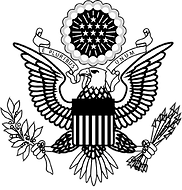
.png)


